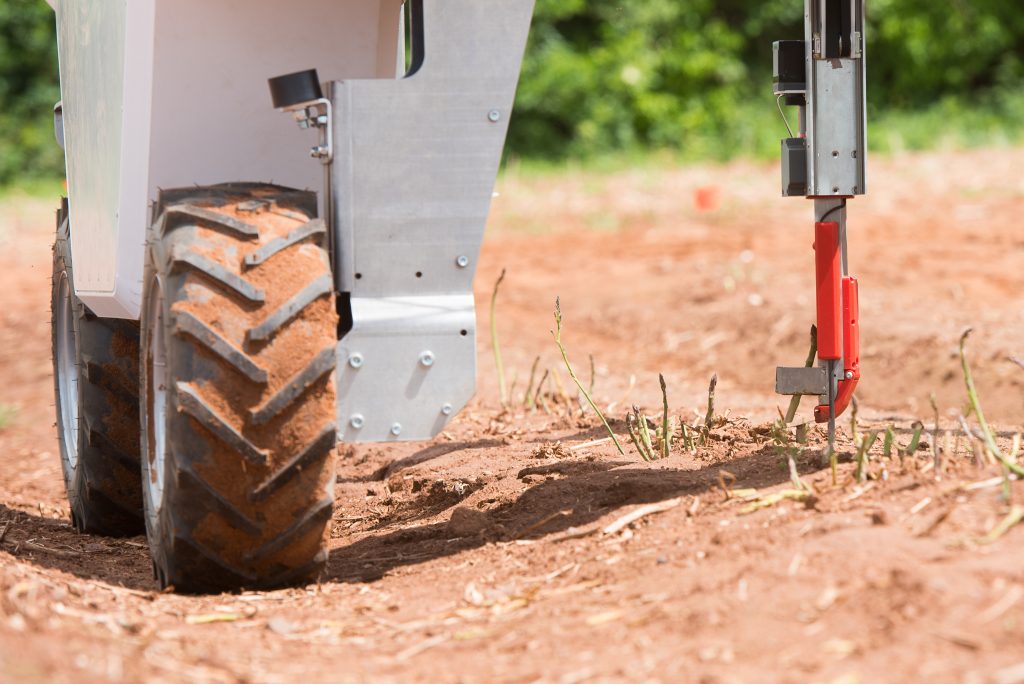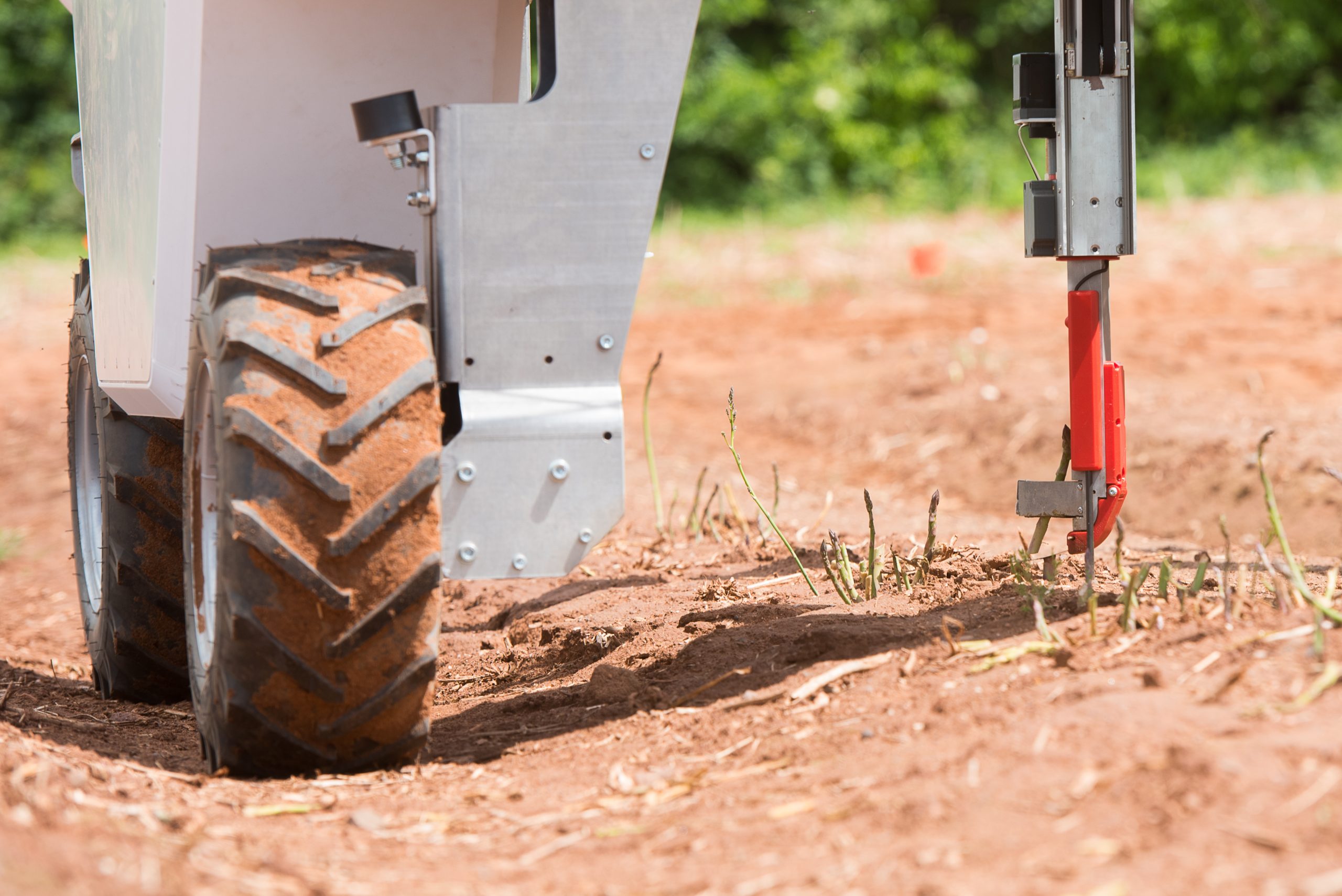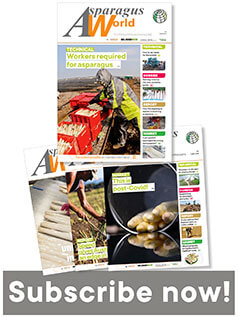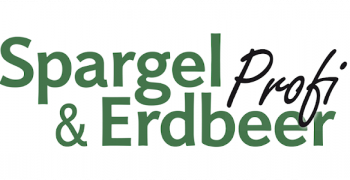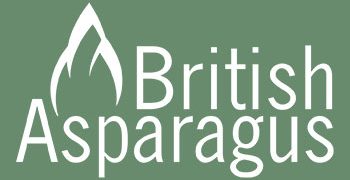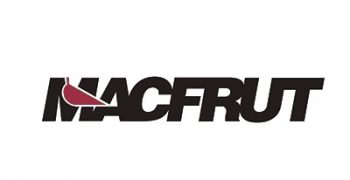A herd of green asparagus harvesting robots
Demonstrating how a small herd of robots can work together to harvest asparagus is on the horizon next season for Muddy Machines. That’s one way the AgTech and robotics company plans to use a new round of seed funding totalling £1.5 million (over €1.7m) announced in August for its Sprout harvesting robot. The company’s technology allows farmers to precision harvest crops like asparagus. It says Sprout – now on its 3rd prototype – can already drive through fields harvesting accurately for up to 16 hours a day before needing a recharge, therefore hugely increasing the picking window. The new round of funding will be used to strengthen the company’s engineering team and build capacity to cope with more widespread adoption of its technology.
It will specifically focus on building a small herd of Sprout robots for the 2023 asparagus harvest season – all communicating with each other to autonomously harvest whole fields of asparagus – as well as generating initial revenues; continuing with the development of different crop harvesting capabilities; and planning production of the next generation of lightweight, battery-powered Sprout robots. Muddy Machines was founded in 2020 by Christopher Chavasse and Florian Richter with a vision to use robots to sustainably solve pressing labour issues in farming. The company has previously won nearly £2.5m in grants from Innovate UK and DEFRA.
Sprout has the support of UK’s largest asparagus grower Cobrey Farms
Muddy Machines has been developing its Sprout robot through trials this year on Redhill Farm, in South West England. Part of Cobrey Farms, the UK’s largest growers of asparagus, the startup has been provided with a portacabin office and barn to use as a workshop there. John Chinn of Cobrey Farms said it’s generally believed that robotic selective harvesting of fruit and vegetables, such as asparagus, is still a few years away from being commercially available and viable. “However, I believe Muddy Machines may well be the first to market with their asparagus harvest robot,” he said, with harvesting of Tenderstem and courgette likely to follow a few years later. In return for its collaboration, Cobrey Farms has been promised first right of refusal on the robots for asparagus harvesting for the first two years of their commercial availability. While there’s been remarkable progress with machine learning and the ability to recognise harvestable asparagus spears – leaving young spears for another day and not trying to harvest a weed – the next challenge is to improve the mechanics of cutting them, Chinn said.
The arrival of commercially available and viable robot harvesters for asparagus won’t come soon enough in the UK, where “the situation is desperate.“ “It’s not about cutting costs of labour, but our inability to find it. We have a 12-week season and this technology is vital if we are to harvest the crop,” he said. With around 1,350 people needed each picking season at Cobrey Farms, labour is one of the biggest costs to his business and finding ways to save costs and become more efficient is crucial for survival. While farm machinery is generally getting bigger and heavier, which is bad for soil compaction, Sprout is fairly small and light, at less than half the size of the smallest car. With several robots working in one field, each using GPS navigation and communicating with each other to ensure that they do not overlap, soil compaction will be reduced, Chinn said. He is also looking at ways to provide electricity to recharge the robots by harnessing renewable energy on the farm.







